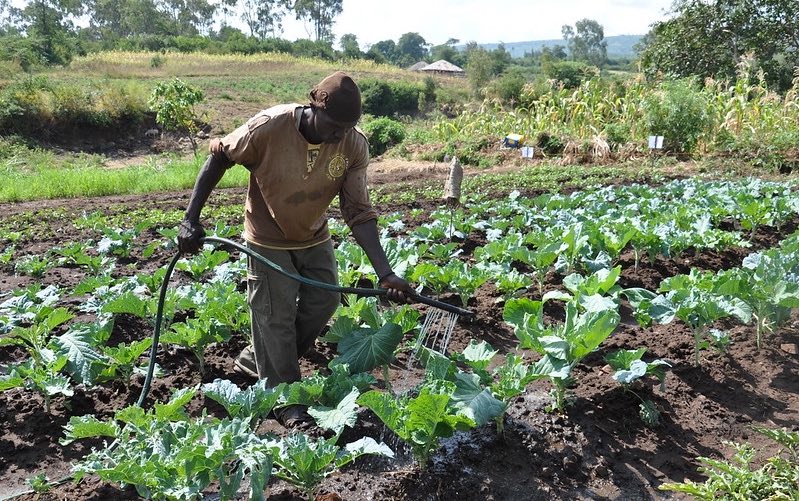At the COP26 climate conference in Glasgow in 2021, 26 countries pledged to introduce new policies to foster more sustainable and less polluting agriculture. “Nature-based climate solutions” were hyped as a means to make “food and farming sexy.” All of this is in the abstract. “Agriculture” itself is an abstraction that glosses over the diverse and complex realities of farming. International governmental pledges can be signed and lauded, but are of little value if not subsequently implemented through the management practices of farmers. These farmers live within quite different realities to those of the policy makers and the general public. Their decisions are weighed in the context of environmental constraints and challenges, economic uncertainties, labor and capital needs, and public perceptions and pressures expressed directly or through the market.
Bridging from bold headline policies to new management in local contexts requires translating aspiration to action. Yet, the long litany of failed pledges over 30 years of discussions suggests mutual incomprehension across policy ambitions and farming realities. We need a language that unifies policy priorities, agricultural businesses, and the diversity of farmers across the globe. This language is the language of earth, or more prosaically, soil.
Farming starts in soil
Soil health underpins agricultural sustainability. Fertilizers have boosted productivity over the past 70 years or more, albeit at the expense of natural nutrient cycling processes. A single teaspoon of soil contains billions of microbes, including bacteria, fungi, protozoa, and nematodes. Plants provide sugars to microbes, while the microbes make crucial nutrients available to plants. This cycle builds soil structure, promotes water holding capacity, and sequesters carbon into the soil. Its continued viability depends on maintaining both a rich plant cover above ground, and the diversity of essential and barely comprehended microbiota below ground.
Returning to COP26, governments recognized that soil and nutrient management practices lie at the heart of climate-resilient, sustainable food production systems. Farmers recognize the value of healthy soils, and many are adopting farming practices to recover soil vitality. Yet bridging the gap between global aspiration and the scaling-up of beneficial management practices requires collective action, which is where agro-industry can play an important role. The levers of change lie with the actors that bridge policy and practice, and producers and markets. The large agribusinesses have the reach, the capital, the influence, and the knowledge to enhance the reform of agricultural systems across supply chains. Their motivation for doing so is born out of the increasing fragility of their own supply chains, especially given climate change, biodiversity loss, and soil degradation.
Feeding microbes
To facilitate such reform, agribusinesses should rethink their mission to be one of feeding microbes as well as people. Realigning farming priorities to the needs of soil microbes will maintain better soils, allowing for improved food production in the long term, while benefiting climate, water, and biodiversity. In other words, we need to take account of the biology of soils as much as we do of their chemistry and physics. There are small signs that this transformative approach is underway. Under a new scheme starting in 2022, farmers in England will be paid to nurture healthy soils. The means by which farmers might do this can be as simple as planting cover crops on bare soil over winter, thereby protecting the soil from erosion and nutrient runoff. Agribusinesses should consider how the chemicals being applied to soils and agricultural management practices might affect the below-ground microbiota, and the essential services they provide. That they are beginning to do so is evidenced by regulatory requirements for assessing the potential effects on soil macro- and micro-organisms, and investments in precision farming, which targets very specific amounts of fertilizer to the nutrient requirements of the crop at particular field locations. This reduces waste and cost, and minimizes damage to below-ground biodiversity. An even better approach might be to seek to understand how to nurture not only the crop, but also the soil microbiota.
All this requires integrating knowledge of soil biology, chemistry, and physics with farm management systems. Considerable knowledge already exists, albeit mainly embedded in often barely penetrable scientific literature that is not accessible to most farmers. Interpreting such knowledge is fraught with difficulty, even for experts, as it is often context specific, subject to ambiguous interpretation, and can even be contradictory. For this reason, our project Enhancing Resilience and Biodiversity in Crop Systems, conducted in partnership with IFPRI, is comprehensively synthesizing the existing knowledge to provide accessible understanding of how farm management actions might enhance soil health and biodiversity, and what policies provide suitable incentives and support for good management practices.
Action on soil is a unifying goal, shorn of political expediency and directly linked to food security. It can unite policymakers, business, and farmers in seeking to address common goals. In revitalizing soils we will, almost as a byproduct, contribute substantially to climate mitigation and adaptation, and to restoring biodiversity. To do so effectively requires both a clear understanding of the science and its integration in farm management practices. This is best done through industry and non-governmental intermediaries within a supporting policy framework. Our purpose, to condense the wealth of scientific knowledge and make it accessible, is a first and essential step towards this effort.
Jaboury Ghazoul is the Professor of Ecosystem Management at ETH Zurich. He is also a member of the World Food System Center.
This post also appears on the ETH Zurich World Food System Center site.







